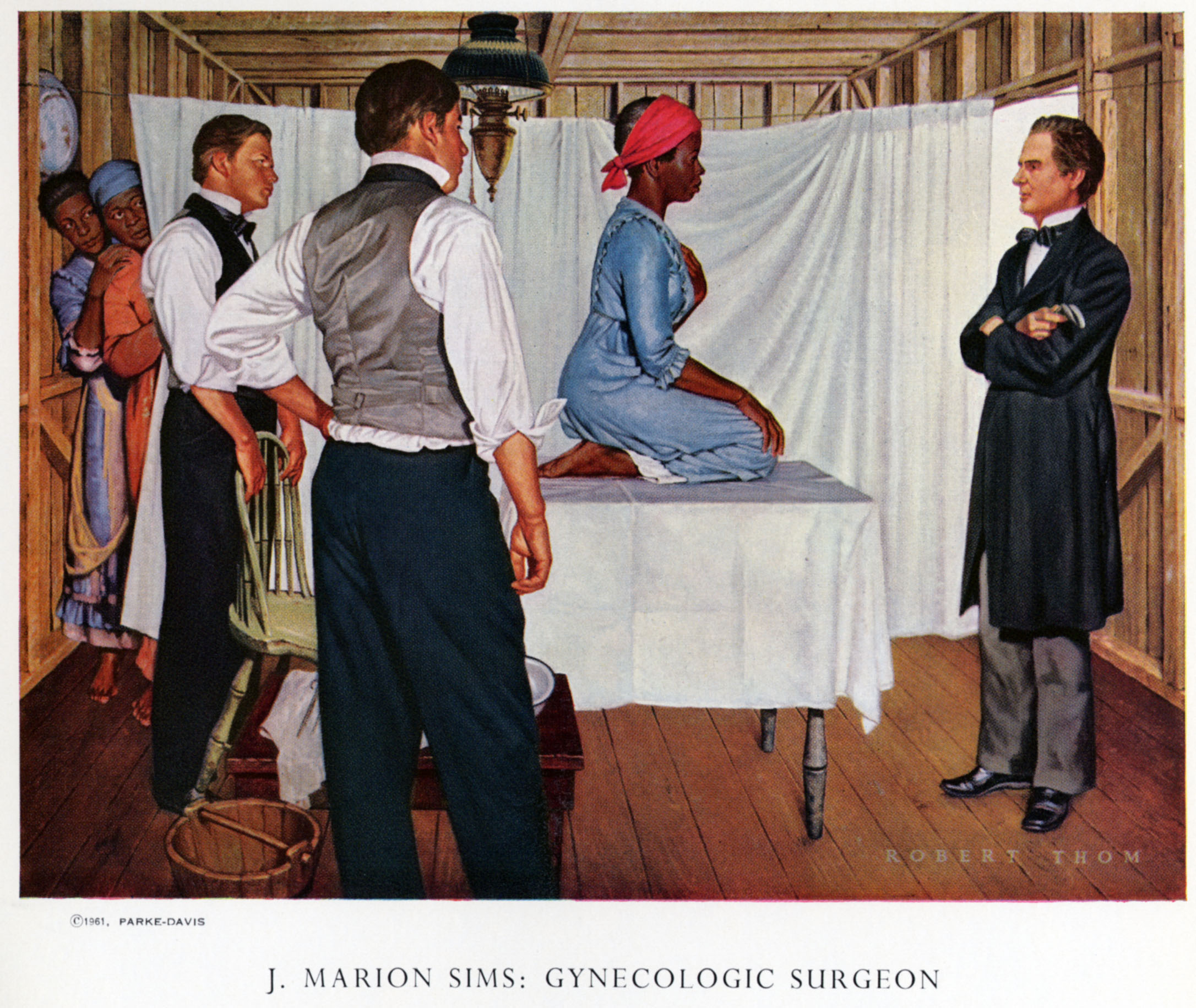

The above painting is by Robert Thom and depicts gynecological surgeon Marion Sims, who performed experimental surgeries on Black slave women. The painting was retrieved from OHSU and is used here for educational purposes.
Black Health Matters
by Ammon Cheney, PsyD
February 8, 2021
With permission I quote my friend, a fellow psychologist who identifies as a Black female. She works in a large hospital setting and she recently posted this statement to social media:
Today I accepted the COVID vaccine with the awareness of the atrocities committed by our health care system and country against Black and Brown people. The fear people have about the health care system are real and valid. I am also very aware of the numbers of Black and Brown folks killed by this virus. I accepted this vaccine with hope and faith in science and humanity. I accepted this vaccine with the hope of protecting my family and the people in my community.
So much in that statement awoke me to my privilege in relation to healthcare as a white, cis-gendered, male. I take for granted that healthcare is on my side. I take for granted that for centuries, medical advances have been designed to serve people who look like me, and advances have been almost solely credited to people who look like me. My friend’s words immediately reminded me of the Tuskegee Study, wherein Black males were lied to regarding treatment for syphilis, and even hindered from pursuing treatment. This example is truly atrocious; unfortunately, this event is not an isolated occurrence. For much of our country’s history, institutions of medicine have abused Black people, either through unethical experimentation or even by exploiting their cultural knowledge for cures—while simultaneously exploiting their bodies for labor.
Reluctance of a historically marginalized people to accept a government-sponsored vaccine is valid. According to a recent Pew poll, only 42% of adult Black Americans reported willingness to receive the vaccine, compared to 61% of adult White Americans. Our medical institutions and services have a long way to go to fully earn the trust of the Black community.
At Student Health Services we, as a team and as individuals, are always working to increase our cultural competency. During this Black History Month, I am becoming more aware of my field’s pitfalls in serving Black populations. For instance, I work quite a bit with clients who have attention deficit and hyperactivity disorder (ADHD), and I know that Black adolescents are often diagnosed with oppositional defiant disorder (ODD) when the less pathologizing diagnosis of ADHD is more appropriate. Besides this poor practice leading providers to inappropriate treatment planning, it also perpetuates a stereotype of dangerous Black youth. I am certain that there are many other ways that racism and biases need to be challenged.
I want to provide some resources that I have recently discovered especially geared toward Black audiences:
Books:
-
-
- The Unapologetic Guide to Black Mental Health: Navigate an Unequal System, Learn Tools for Emotional Wellness, and Get the Help You Deserve (2020). By Rheeda Walker
- Radical Dharma: Talking Race, Love, and Liberation (2016). By Rev. angel Kyodo Williams, Lama Rod Owens, and Jasmine Syedullah, PhD
-
Podcasts:
Websites:
Instagram accounts:
UVU Departments:

